If you have experienced any form of emotional abuse – from family, friends, or romantic partnerships – you may wonder if you’ll ever find complete healing from the painful outcomes of that abuse. Perhaps you have resigned yourself to never feeling “normal” again.
We believe you can find healing and even feel better than normal. This article is meant to give you hope and restore your faith in your ability to heal from emotional abuse.
Read on as we unpack key essentials and 5 steps to support your healing from emotional and verbal abuse.
Understand That Emotional Abuse Isn’t Your Fault And You Didn’t Cause It
Before we tell you why it’s not your fault, stop to take a moment to recognize any shame or responsibility you are feeling for the conflict and pain coming from the abusive relationship. Recognizing this is the first step in your recovery. Ignoring those feelings won’t make them go away.
Here are 4 key reasons you may believe emotional abuse is your fault, but it’s not:

- You were conditioned by your emotional abuser through constant criticism and reverse blaming, among other tactics, to believe it was your fault and make you feel worthless.
- You may have reacted in ways that do not make you proud. These traumatic reactions are responses triggered by the ongoing trauma of recurring relationship abuse which compels the victim to respond in a fight, flight, freeze or appease mode. This is known as reactive abuse, but would be more appropriately named, “reactive defense.”
- Self-blame helps you to see your lover in a more positive light, which victims so desperately want to believe about the romantic relationship.
- You had nothing to do with the faulty mindsets, destructive beliefs, and worldviews of your emotional abusers that are the root causes of their abusive behavior.

Go deeper into the reasons the abuse is not your fault, here. In fact, read the page and memorize it! We don’t want you to sit in the seat of self-blame or low self-worth any longer!
Now, let’s look at some ways to accept that abuse is not your fault.
How Can You Accept That Abuse Is Not Your Fault?
Here are some steps to help you have self-compassion and accept that abuse is not your fault:
- Acknowledge the truth. See what happened through accurate viewpoints. Don’t gaslight yourself.
- Know that you would have been able to stop it if it was your fault.
- Your mistakes do not excuse their choice to abuse you.
- Stop telling yourself that “maybe you should have stopped it.” Many victims feel ashamed about the abuse because they ignored early warning signs, didn’t leave sooner or seek support, or weren’t able to make it stop.
- Declare aloud (and often) that the abuse is not your fault despite the intense emotions you may feel on the inside. One of the internal emotions you may be feeling stuck about is that you in some way might have been able to save the relationship without the abuser’s cooperation. This type of thinking would mean a life of pain, confusion, and abuse.
Learn more about these 5 steps here.
Can you heal from emotional abuse?
The short answer is, “yes”. Yes, if you are willing to do the work your healing journey requires.
So what gets in the way of your healing?
Some victims struggle to heal because they believe they lack the resources for healing or feel unable to face the trauma of past abuse they endured. Once you seek professional help from a mental health professional, you learn that overcoming trauma requires you to face it and work through it. Too often abuse victims stop the process prematurely because it feels too hard to endure. Unfortunately, the trauma won’t disappear on its own.
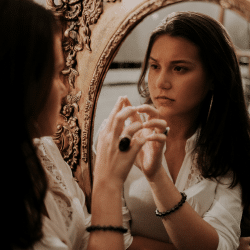
Or, out of the fear of being all alone, they open up to unhealthy family members or social relationships with people who do not understand emotional abuse, are unable to empathize with the victim’s trauma, and may even reinforce the victim’s self-blame or defend the abusive partner. These interactions add a new layer of trauma to the victim, preventing their healing and making them feel hopeless about their situation.

When victims make healing their top priority, it’s imperative to make hard decisions about who they open up to and how to limit their interactions with people, including family members or friends, who are not fully aligned with them. If victims don’t set these boundaries, inadvertent or intentionally judgmental responses from these people not only trigger but can exacerbate the victim’s trauma symptoms delaying healing even longer. MEND calls this Double Abuse because traumatizing responses responders often cause longer delays in recovery for victims.
When you find a very healthy relationship and support system and lean into the healing modalities, we believe in time you can be restored.
Overcoming Emotional Abuse – There’s Hope
Everyone is different including how they heal. Know that not all victims of emotional abuse experience the same physical or mental illnesses or psychological symptoms of trauma and therefore won’t benefit from the same type of treatment.
Here are some of the effects of emotional abuse, which might require different healing modalities:
- Depression
- Anxiety
- Profound confusion, fragmented communication, and memory loss
- Physical pain, stress, or unexplained illnesses
- Auto-immune disorders
- Heart disease
- Eating disorders
- Digestive issues
- Chronic headaches or migraines
- Substance abuse disorders
- Obesity
- Post Traumatic Stress Disorder
- Complex-PTSD
- Sleep disorders and nightmares
- Insecurity and trust issues

Maybe you have experienced something that is not on the list. Don’t dismiss it. Bring it to the table so you can begin healing. There is treatment for every item on the list and even those that are not on it.
5 Essential Steps to Healing from Emotional Abuse
There are several strategies that can help you recover from an emotionally abusive relationship and we will share five of them. But this is not a one-stop shop. You need to figure out what is going to work best for you. But you might be surprised what helps you the most.
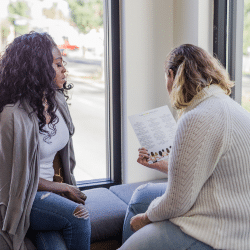
1. Educate Yourself
Knowledge brings clarity and clarity helps you to overcome prolonged states of confusion and stress. When we are able to clearly separate abusive actions using proper language from healthy human actions, it helps us to reduce trauma symptoms. The more you understand the destructive behaviors that were employed against you the better equipped you will be to set boundaries against abuse in the future and to release any self-doubt or blame you feel internally for the abuse. The more a victim realizes they are not alone and not crazy, the quicker their self-confidence returns and their mental health improves.
Read, watch, or listen to blogs, vlogs, podcasts, webinars, videos, books, online courses, or other material that helps to inform you about emotional abuse, narcissistic abuse, the root causes, and the best ways to heal.
Where do you start?
Begin with these free downloadable guides and training here.
And, if you want to get a super fast, concise education on recovering from emotional abuse, consider investing a small amount for our training “Finding Clarity and Healing in Difficult, Confusing, Stressful or Abusive Relationships.” The coaching calls and course material will help you identify and use proper language to name relationship conflict patterns and gain clarity for straightforward healing.
When you understand WHY you’ve always felt something was wrong with your relationship but couldn’t explain it, you can take steps toward transformation.
Note: Education is particularly important for people who grew up in abusive homes because abuse has been normalized to them during their developmental years, especially if it was emotional or narcissistic abuse, making it difficult to distinguish between healthy and abusive behavior without intervention. With more overt forms such as physical abuse, sexual abuse, or overt psychological abuse, even a child knows something is wrong. With hidden forms of emotional abuse, the child may not know something is wrong but is still more apt to consider themselves unloveable or broken in some way since they did not receive emotional support from their primary caregiver. Education can help resolve these challenges.
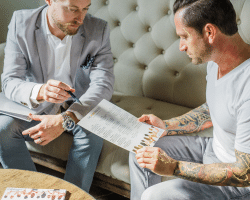
2. Learn To Love Yourself Well
This may feel like the hardest step to take, but we see survivors do it all the time. It truly is the most beautiful part of the healing process and the core of your recovery. Self-love is also one of the best solutions for staying out of unhealthy relationships, as a lack of self-love strongly influences a person’s unhealthy relationship choices. Growing in self-love helps victims learn to trust their gut and regain confidence. Read MEND’s blog on how to love yourself after emotional abuse here.
Some additional ideas for learning to love yourself:

Take care of yourself first.
Healing from emotional abuse often requires survivors to find healing from various mental health issues, emotional pain, physical health complications, and emotional trauma. It’s essential they learn to trust their emotions and body when they tell you “No, not today” or “Yes, let’s do it”.
If you’re not ready to attend that family function, don’t. We know you’ve likely spent years and significant personal energy taking care of other people’s emotions. It’s time to put yours first and simply say no to others when you need to care for yourself that way.
With that said, there may be a time when it becomes important to stretch yourself emotionally, especially when you feel like isolating. You cannot heal in isolation. It becomes important to push yourself to engage with others to get out of your isolation. You are not required to talk about your personal situation unless you want to.
Pay Attention to How You Feel.
Keep a journal and recall prior abusive circumstances and jot down how the conflict made you feel. You may have spent years ignoring the high value of your feelings. Begin to get reacquainted with them. Really listen to your body and notice how stress, oppression, and injustice impact you emotionally and physically.
Really spend time validating your emotions and allowing them to come out. Many times, especially for children who are emotionally abused, have become accustomed to stuffing their emotions down, thinking they might disappear but they don’t. Ignoring them instead of processing and releasing them can cause long-term physical complications.
Listening to and acknowledging your feelings and emotions are important practices of self-love.
Declaring Your Goodness.
Address the negative self-talk head-on and tell it that it is time to leave! The best way to counter negative self-talk is through speaking positive self-affirmations aloud. Declaring your own goodness sends signals to the brain to shut down negative internal dialogue, calm anxiety, and restore calm.
When you start declaring the good things that are you, you have trouble believing they are true. But if you stick with it, in time you will see yourself as the empathic good person you are. Declarations alone likely are not enough to extinguish negative self-talk but are very when combined with these other steps.
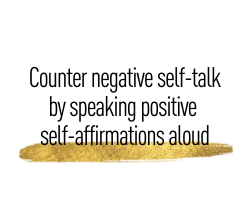
Forgive Yourself.
This can be a hard thing to hear but if you feel as if you did things that were wrong, forgiving yourself for them can be a very powerful act of self-love and can help to reverse low self-esteem and self-punishing behaviors.
You may be angry at yourself for waiting too long to leave. Please remember, emotional abuse is very confusing. People from all cultures and socioeconomic environments have experienced similar situations.
Prioritize things that make you feel good. Give yourself gifts. They don’t need to cost money. Extend yourself grace. Take your wants and desires seriously and follow through with them.
Paint, create, write, hike, swim, surf, bike, sing, or join a book club. Watch sunsets, climb a hill, or look at the view. You might have to dust off an old hobby you used to do before the abuse – plenty of survivors return to their passions and find themselves again when they do.
Find a good friend to be an accountability partner to ask you what new activities you explored this week. Activity cures depression and is essential to your healing.
There are some additional resources below we believe will help you to heal and love yourself again.

3. Find A Safe Support Community
It’s important to find people who have empathy and compassion for you and will give you the space and time you need to process your story and heal properly.
By this point, it’s likely that many people have violated your trust and hurt you with how they responded to your story of abuse. Some people make it clear they do not want to be involved and choose to support the abuser. This can be very painful for the victim. Remember, part of creating a strong support system is to weed harmful people out of your inner support circle regardless of past relationships or how close you used to be. Guard your heart. Only confide in people who fully believe you and support you.
A special note about family. You might feel like you can’t set boundaries because you fear losing them or maybe you are dependent on them for financial support. This doesn’t mean you are required to open up vulnerably to them or to explain every decision you have made. Recognize they either don’t understand or don’t really want to learn and there’s nothing you can do about it. Right now, it’s not your job to educate them. Simply protect yourself by setting boundaries to protect your emotions and firmly keep them.
Many victims find healthy support communities when they join an abuse support group or group therapy. As an abuse survivor, it can be very validating and empowering to be around other survivors. You will not feel alone. In time, your confidence will build, and you will learn how to recognize how your body is feeling, trust your instincts about people, and find healthy relationships.
4. Get Professional Help
Truly, therapy is one of the most successful ways you can heal from abuse, self-love deficit disorder, and trauma. However, it’s important to shop for a trained therapist in narcissistic abuse recovery who is trauma-informed. Read “How to Choose a Relationship Therapist for Your Troubled Relationship” to learn more about shopping for a therapist and to know when it’s time to quit therapy.
5. Practice A Healthy Lifestyle
This will look different during various stages of your healing, so remember to be patient with yourself.
We also recognize that many victims responded to abuse by controlling their eating, not eating, exercising too much or too little, or any variety of coping mechanisms that helped them navigate their life. If this is you, it might be hard to hear “exercise more” or “eat healthily”. Take this at your own pace and along with a professional or support group who can help you to adopt new coping strategies so you may achieve your health goals.
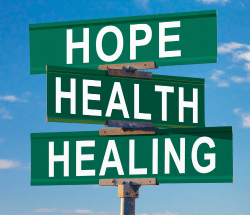
If you can, we suggest you start by moving your body. Maybe go walking, running, or hiking. Try yoga, calisthenics, dancing, etc. You may not be able to do some of these things in the beginning but in time we hope you will be able to make healthy movement a part of your wellbeing. Exercise reduces stress hormones, anxiety, and depression, and promotes healing in measurable ways. Exercise classes could be an important way to get out of isolation and connect with like-minded people.
Try to bring in some healthy nutrition to stimulate your brain and body. This may look different for different people. Just remember that when the emotions become overwhelming it’s easy to develop unhealthy habits that can be hard to overcome.
And of course, try to make sure you are getting enough sleep. It’s essential to your healing process. It’s not uncommon to struggle with adrenal fatigue or shut down which can interrupt sleep. So, don’t hesitate to get outside support from a healthcare professional for medication or supplements if you need them.
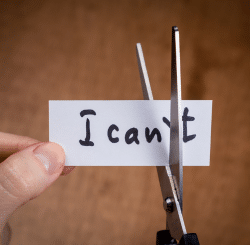
The Difficult Process
Once you have been away from the abuse for a while, it is tempting to believe it was not as bad as you once thought. During these times, it’s important to reach out to one safe person or friend who has been there all along so you can be reminded of everything you shared when the memory was still fresh.
Be prepared for this phase by keeping a journal and writing down all the reasons you may decide to leave or why you decided to leave the toxic relationship behind. When negative emotions flood you, write them down. Then, when you find yourself confused or challenged by the healing process, pull out the journal to remind yourself of why you are on this journey to heal from emotional abuse.
The Recovering Period
Our strongest encouragement to you is to be patient and have grace for yourself. Most people underestimate the significant toll recurring emotional abuse can have on its victims.
If you have a hard time protecting and taking care of yourself, try to find someone who can help you. In the early time of recovery, you may need to build a cocoon around yourself in which all you do is sleep, rest, pray, write, read, and heal. Don’t feel like you need to explain yourself to anyone. But don’t isolate yourself for too long. Your body needs to recover and it’s essential that you allow it to do so by getting active and connecting with safe friends. Maybe the safest friends you’ll connect with are ones from a new exercise or art class.
You may be surprised by the profound effect your relationship had on your health and maybe you were not prepared for that. But don’t worry, there are so many resources available to help you heal from trauma. Some that cost and some which don’t.
Additional Tools and Resources
Here are some of our favorite tools and resources:
- The MEND Project training programs and special workshops for victims, survivors, and anyone in high-conflict relationships, including Free Monthly Interactive Workshops. Find out what is available here: Mend Training
- The Flying Free Podcast, support groups, and coaching by Natalie Hoffman at Flying Free.
- Some authors who teach about abuse, trauma, and how to heal that we recommend: Dr. Judith Herman, Dr. Bessel van der Kolk, Patricia Evans, Leslie Vernick, Ross Rosenberg, and Lundy Bancroft. Each of them has authored multiple, excellent books.
- Created to Thrive: Cultivating Abuse-Free Faith Communities, a book helping leaders address and prevent abuse in the Church.
National Domestic Violence Hotline: their telephone hotline (800.799.7233) and website are full of beneficial resources, including lists of domestic violence shelters and other resources available across the Nation. Each domestic violence service agency provides different services and benefits. It’s worth making a few calls.








You shared a great article. I would like to appreciate your time and effort in creating this meaningful information.his article is a beacon of hope for those who’ve endured emotional abuse. The 5 steps provide a clear roadmap towards healing and recovery. Acknowledging the pain, seeking support, and rebuilding self-worth are essential. A concise guide for anyone on the path to reclaiming their emotional well-being.
I resonate so deeply with the topic of this blog post. Narcissistic heartbreak recovery is a journey that’s often misunderstood by those who haven’t experienced it. It takes immense courage to rebuild our self-empowerment and self-worth from the ground up. Your words truly capture the essence of this process and provide a guiding light for those of us who are on a similar path. Thank you for sharing your insights and personal experiences – they make us feel less alone and more empowered.